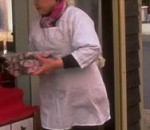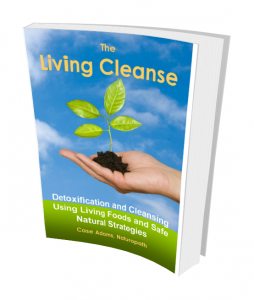Jobs that Increase Your Risk of Breast Cancer
Are you working in a job that increases your risk of breast cancer? Research has now arrived at findings that show some occupations definitely boost risk of breast cancer.
In this article
24,000 jobs studied for breast cancer risk
Canadian researchers have determined, in an analysis of over 24,000 possible jobs, that certain occupations are associated with increased breast cancer incidence among women.
The research utilized cancer patients who were recruited between 2002 and 2008, along with matched controls. There were 1,006 patients with cancer who were matched with 1,146 people with similar risk factors, which among many others included use of alcohol, smoking, contraceptive use, weight. The analysis included 12 jobs for each subject through their lifetime, weighted to the duration of the job.
The jobs were cross-referenced through the North American Industry Classification System and the National Occupational Classification protocol. This allowed the jobs to be classified within one of 32 ‘minor’ sectors and 8 ‘major’ sectors. This allowed the researchers to find correlations between types of occupations and the risk of breast cancer among each.
The research found that women who worked in automotive plastics or food canning occupations had some of the highest incidence of breast cancer, at more than two-and-a-half times for automotive plastics and well over two times the incidence for food canning. The highest risk factors occurred among those with premenopausal breast cancer, as the risk increased by close to and well over five times for automotive plastics and food canning workers. Those who worked within the plastic and rubber industries had close to twice the risk of breast cancer.
Outside of these, women who worked in bars or gambling casinos had more than double (2.28 times) the risk of breast cancer, while working in metal-working and agricultural occupations increased breast cancer risk by 73% and 36% respectively.
Higher endocrine disruptor jobs
In all, women who worked in occupations with higher exposure to endocrine disruptors and other carcinogens had a 42% increased risk of breast cancer. Those who worked in jobs that exposed them to injection molding of resins, monomers, laminates and other plasticizer chemicals had the most cancer incidence. Other breast cancer-related chemicals included flame retardants, dyes, decomposition products and pigments.
Specific chemicals noted for the most cancer incidence with occupational exposure included phthalates, polybrominated diphenyl ethers (BPDE), butadiene, vinyl chloride, styrene, acrylonitrile and bisphenol-A (BPA) were implicated in increased breast cancer incidence in this and other research.
Large NIH study confirms results
In a similar study, scientists from the National Institutes of Health National Cancer Institute studied 74,942 Shanghai women. In this study, women working in food canning occupations had more than three and a half times the incidence of breast cancer among women.
Plastics and other chemicals are called hormone disruptors because they can either attach to endocrine receptors among cells or they can otherwise stunt or derange the production of certain hormones – especially estrogen and progesterone.
About one out of every eight women are diagnosed with cancer each year in the U.S.
REFERENCES:
Brophy JT, Keith MM, Watterson A, Park R, Gilbertson M, Maticka-Tyndale E, Beck M, Abu-Zahra H, Schneider K, Reinhartz A, Dematteo R, Luginaah I. Breast cancer risk in relation to occupations with exposure to carcinogens and endocrine disruptors: a Canadian case–control study. Environ Health. 2012 Nov 19;11(1):87.
Ji BT, Blair A, Shu XO, Chow WH, Hauptmann M, Dosemeci M, Yang G, Lubin J, Gao YT, Rothman N, Zheng W. Occupation and breast cancer risk among Shanghai women in a population-based cohort study. Am J Ind Med. 2008 Feb;51(2):100-10.
















